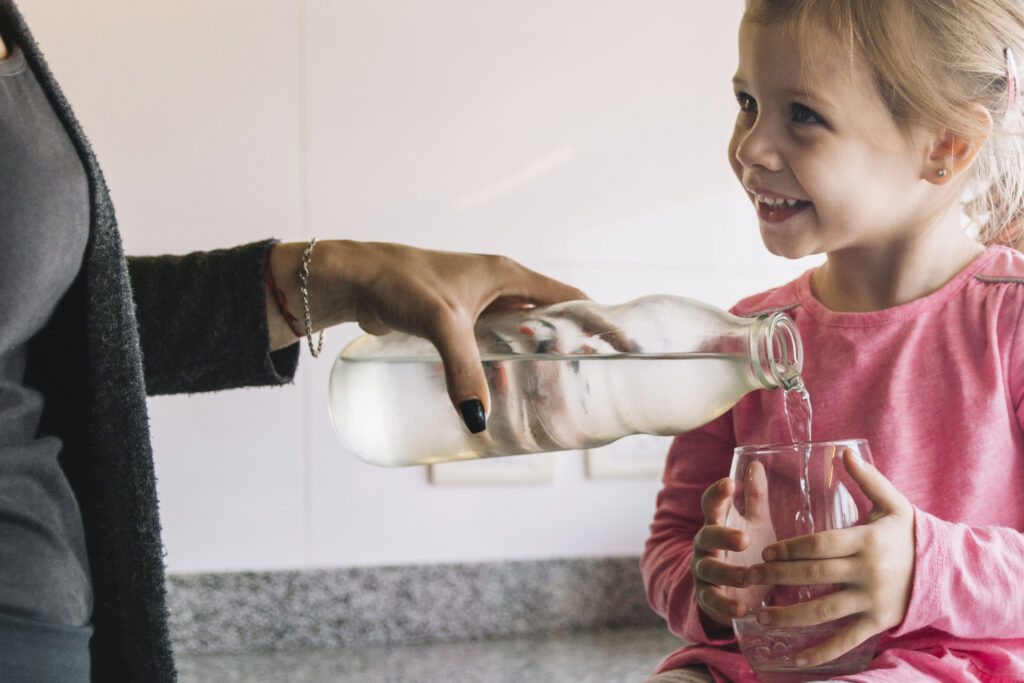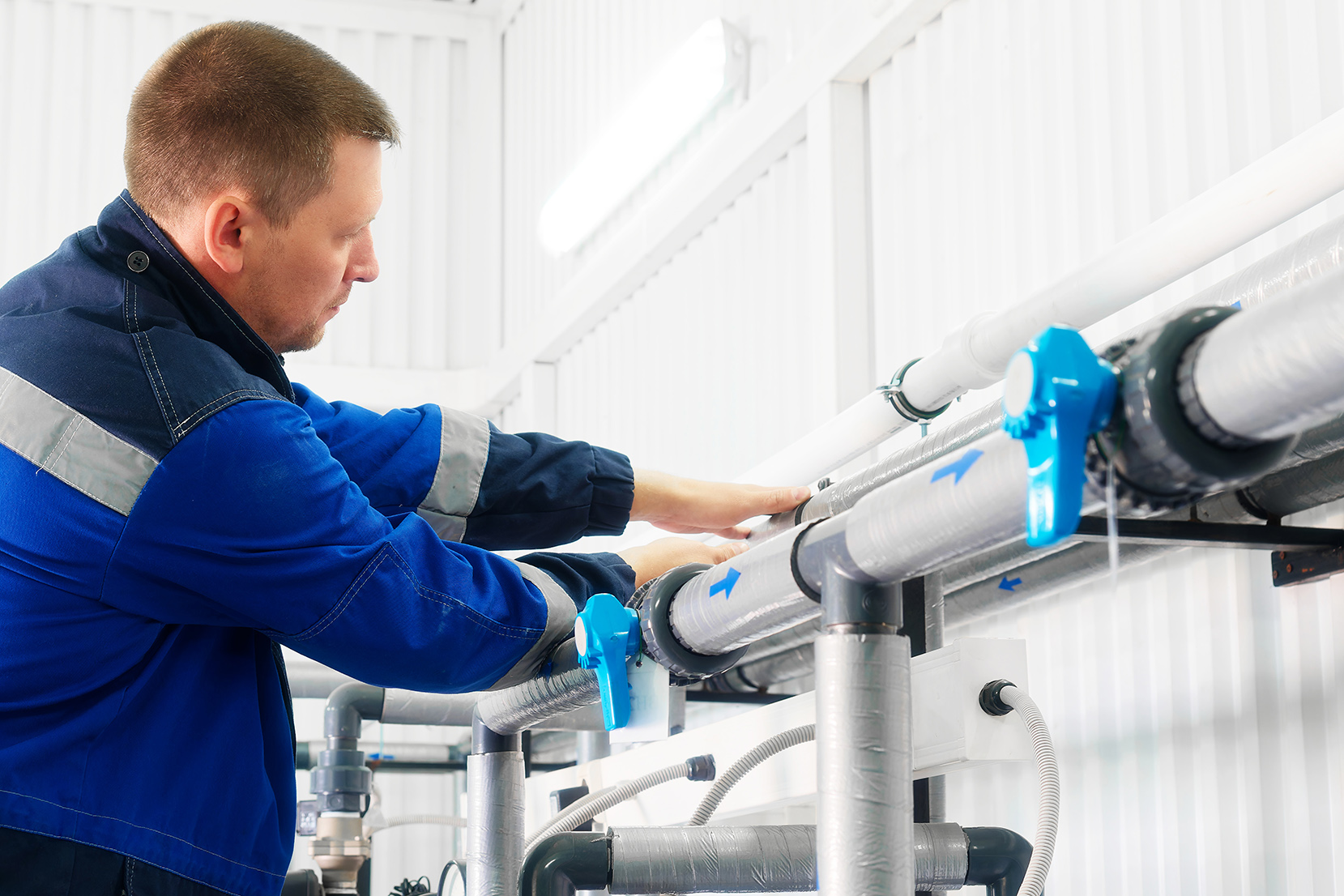Do you feel overwhelmed by the numerous water treatment options available for your customers? You’re not alone.
Many retailers face the challenge of selecting the right solution to ensure the best water quality for their clients. Whether it’s removing impurities, softening hard water, or providing the purest drinking water, the decision can be daunting.
At OPUR, we’ve been guiding our customers through these decisions since 1976.
With decades of experience and a commitment to high-quality products, we understand the importance of making the right choice. Our expertise in filters, water softeners, and reverse osmosis systems equips you with the knowledge needed to confidently recommend the best solutions to your customers.
In this article, you will discover the differences between filters, water softeners, and reverse osmosis systems, understand their benefits and applications, and learn how to choose the right solution based on your clients’ specific needs. By the end, you will be equipped with the information necessary to make informed, precise, and timely recommendations, ensuring your customers enjoy safe and high-quality water.
Cartridge Filters
Water filters are designed to remove impurities from water, such as sand, lime, and iron particles. They are not suitable in the presence of silt, for which composite sand filters should be considered.
The complete range starts from ½” to DN100, with the possibility, depending on the model, of installing nylon cartridges, wound polypropylene, AISI 304 stainless steel, or activated carbon.
Applications
Cartridge filters are commonly used in domestic settings, but they are also suitable for large systems (apartment buildings, industries, communities) and situations where large quantities of filtered water are required.
Water Softeners
Water softeners are devices designed to reduce water hardness, mainly caused by the presence of calcium and magnesium ions. Limescale buildup can lead to issues such as pipe blockages, stains on dishes and glassware, and reduced efficiency of household appliances, in addition to shortening their lifespan.
Available models range from 4 liters of resin to large industrial systems with up to 700 liters.
Applications
Water softeners provide numerous advantages and are useful in various settings:
- Protecting Appliances: Softeners prevent limescale buildup in pipes and household appliances like washing machines, dishwashers, and water heaters. This improves appliance efficiency and prolongs their lifespan.
- Improving Water Quality: Softened water is more pleasant for washing and bathing, as it doesn’t leave soap residue and gives a smoother feel to the skin and silkier hair.
- Reducing Stains: Softened water eliminates limescale deposits on dishes, glassware, and utensils, keeping them clean and shiny.
- Energy Efficiency: Softeners prevent limescale formation in water heaters, improving energy efficiency and reducing heating costs.
- Domestic and Industrial Use: Softeners are used in both residential and industrial settings, where hard water can damage equipment and increase maintenance costs.
Reverse Osmosis Systems
Reverse osmosis systems are among the most effective methods of water purification. They use a semi-permeable membrane to remove a wide range of contaminants (up to 99% of solid particles, viruses, and bacteria).
Applications
Reverse osmosis systems are ideal in many contexts due to their ability to remove a wide variety of contaminants. Here are some scenarios where using a reverse osmosis system is highly recommended:
- Domestic Drinking Water: These systems are perfect for providing safe, contaminant-free drinking water at home, offering excellent-tasting water with no unpleasant odors.
- Food and Beverage Industry: Companies in the food and beverage industry require high-quality water to ensure the safety and quality of their products.
- Pharmaceutical and Laboratory Use: In laboratories and pharmaceutical industries, ultra-pure water is essential to prevent contamination and ensure accurate results.
- Aquariums: Maintaining a healthy environment for fish and other aquatic life requires contaminant-free water.
- Areas with Highly Contaminated Water: In locations where water contains high levels of chemical or biological contaminants, reverse osmosis systems provide an effective solution for safe, clean water.
Reverse osmosis is a reliable and proven technology that guarantees high-quality water. It’s an excellent solution for those seeking the highest level of purity and safety for both drinking water and industrial use.
Choosing the Right Solution for Your Customers
Comparing the Three Solutions
When deciding between filters, water softeners, and reverse osmosis systems, it’s important to understand the distinctive features of each option. Here’s a comparison to help determine the best choice based on your customers’ specific needs:
- Water Filters
- Pros: Remove sediments, sand, lime, and iron particles. Easy to install and maintain.
- Cons: Do not remove dissolved salts, heavy metals, or nitrates; may require frequent cartridge replacement depending on the model and water quality.
- When to Recommend: Ideal for customers seeking a simple solution to improve the quality of drinking water by removing sediments.
- Water Softeners
- Pros: Reduce water hardness, preventing limescale buildup; protect pipes and appliances; improve appliance efficiency.
- Cons: Do not remove chemical or biological contaminants; require regular maintenance and resin regeneration.
- When to Recommend: Perfect for customers living in areas with hard water who want to protect their appliances and improve water comfort.
- Reverse Osmosis Systems
- Pros: Remove a wide range of contaminants, including dissolved salts, heavy metals, nitrates, and pesticides; provide pure water.
- Cons: More expensive than other solutions; produce wastewater during the process.
- When to Recommend: Ideal for customers needing the highest level of water purity, such as for drinking water, the food and beverage industry, or regulated environments like laboratories and pharmacies.
Factors to Consider
To help your customers choose the most suitable solution, consider the following factors:
- Water Quality: Analyze the current water quality to identify key issues. Turbid water with sediments may need filters, hard water requires softeners, and chemically contaminated water could benefit from a reverse osmosis system.
- Intended Use: Consider how customers will use the treated water. Drinking or industrial water may require different solutions.
- Budget: Assess the customer’s budget for purchasing, installing, and maintaining the system.
- Maintenance and Support: Ensure regular maintenance is available to keep the water safe and potable.
- Available Space: Some systems may be bulkier and require more space than others.
- Personal Preferences: Take into account customers’ aesthetic preferences and system functionality expectations.
Maintenance and Costs
Maintenance of Each System
Understanding maintenance requirements is crucial when choosing a water treatment system:
- Water Filters
- Filter Replacement: Cartridge filters should be cleaned or replaced periodically, depending on the chosen model. Washable filters need replacement at least once a year, while carbon filters should be changed every six months.
- Water Softeners
- Resin Regeneration: Ion-exchange resin must be periodically regenerated with salt.
- Reverse Osmosis Systems
- Pre-filter and Membrane Replacement: Pre-filters should be replaced annually, while the membrane typically lasts about three years.
Long-Term Costs and Value
Consider both the initial costs and long-term maintenance expenses:
- Water Filters: Affordable initial cost with relatively low maintenance costs, offering good value for improving drinking water quality.
- Water Softeners: Higher initial cost but valuable for protecting appliances and reducing energy costs.
- Reverse Osmosis: Higher maintenance costs due to filter and membrane replacement, but ideal for those seeking the purest water.
With these insights, you are ready to guide your customers toward the most appropriate solution for their specific needs, ensuring high-quality and safe water.
If you have any questions, our team is always here to help.





